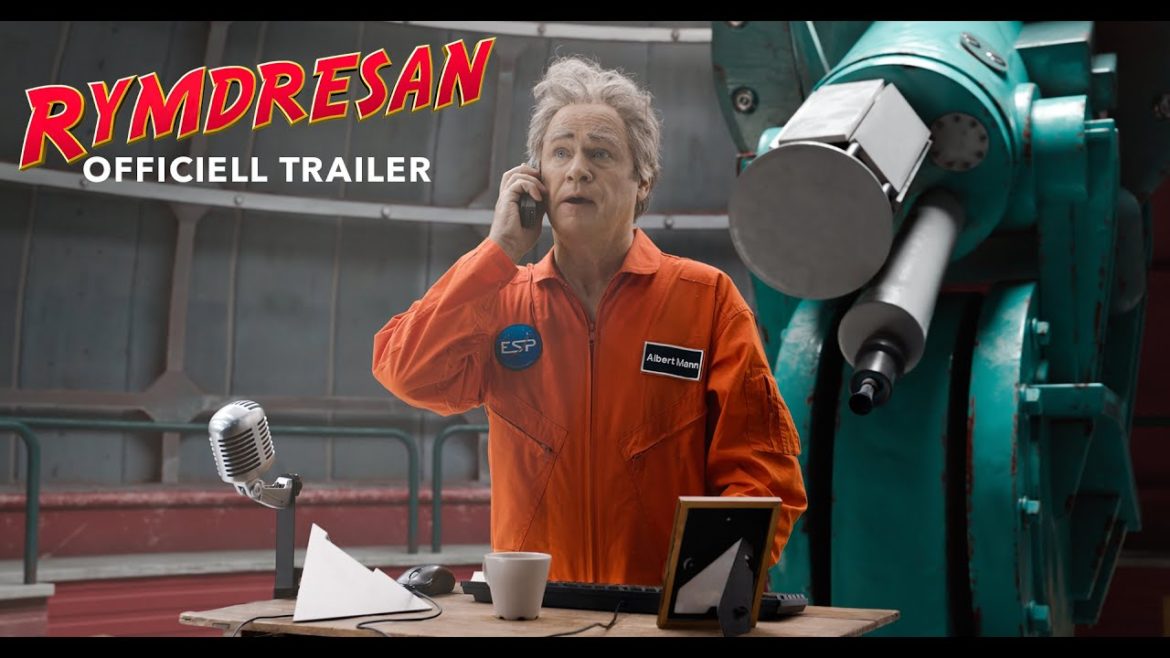TL;DR
Swedish sci-fi is back, but Rymdresan sadly misses the mark. While it's great to see more Swedish genre films, this space adventure about a scientist and his talking lemming trying to stop a skull asteroid falls flat. Despite a cool premise and decent visuals, the heavy reliance on greenscreen, unconvincing acting (especially from a YouTube influencer cast for publicity), and blatant scene-ripping from other movies make it a visually sterile and derivative experience. It fails to capture the magic of its predecessor, offering little more than a disappointing journey. Discover the full critique and see if this Swedish space flick is worth your time!
In September 2018, I reviewed Alone in Space and found it noteworthy that a science fiction film had been produced in Sweden. While it possessed certain shortcomings, it was, overall, an enjoyable and refreshing film that sparked my interest. Consequently, the announcement of a film adaptation of Christer Fugelsang’s children’s book, Rymdresan (The Space Journey), piqued my curiosity: could this adaptation surpass its predecessor?
Albert Mann (Robert Gustafsson), a brilliant scientist, has constructed a space rocket. He has detected a threat previously unknown on Earth: a skull-shaped asteroid rapidly approaching our planet. Impact is imminent, within the hour, leaving extremely limited time for action. He embarks in the rocket with his talking lemming, Lemming (Kim Sulocki), aiming to intercept the asteroid. Unbeknownst to him, two children have inadvertently joined the mission. He soon realizes that he requires the assistance of Mariana (Teresa Cortes Eliasson) and Marcus (Theodor “Theoz” Haraldsson) to save Earth.
Regrettably, I must state that Rymdresan falls significantly short of Alone in Space. Whereas Alone in Space successfully crafted an engaging and entertaining narrative, Rymdresan proved largely irritating. Before launching into a full critique, I will first acknowledge the film’s positive aspects.
Genre films are a welcome addition to Swedish cinema. The fact that more than one science fiction film has been produced in this country in under two years deserves commendation. It is necessary to broaden our cinematic landscape beyond kitchen-sink realism, relationship comedies, and Nordic Noir detective stories. The Blu-ray release presents a visually pleasing picture with vibrant colors and deep blacks. Given the film’s reliance on visual effects, a more impactful DTS track would have been appreciated, though the existing track is adequate. Finally, the core story itself possesses some merit. With these positives noted, let’s move on to a more critical assessment…
Primarily, Rymdresan is filmed entirely against a greenscreen, resulting in a visually sterile environment where the actors appear somewhat disoriented, seemingly unsure of their location. The visual effects, while acceptable, are not entirely convincing, contributing to a pervasive sense of artificiality. Furthermore, the direction and script exhibit deficiencies. The film credits a total of three directors, including one specifically designated for “character direction,” yet the acting remains a significant issue in Rymdresan. Robert Gustafsson delivers a relatively subdued performance, managing to navigate the narrative relatively unscathed. Teresa Cortes Eliasson (as Mariana) performs admirably despite the stilted dialogue and the challenge of acting opposite Theodor “Theoz” Haraldsson.
Speaking diplomatically, acting does not appear to be Haraldsson’s forte, and his performance is unconvincing. This is not solely Theodor “Theoz” Haraldsson’s responsibility; blame also rests with those who conceived the idea of casting him in the film. As some may know (I was previously unaware), “Theoz” is an influencer with a popular YouTube channel. This casting decision appears to be a calculated publicity stunt, intended to attract his fanbase to Rymdresan, complete with a dance sequence reminiscent of his channel content. While casting celebrities in productions aimed at children is not unprecedented, the lack of consideration for Haraldsson’s suitability for the role is problematic. The result is detrimental, negatively impacting any remaining entertainment value the film possessed.
My favorite director, Quentin Tarantino, has famously stated (paraphrased): “A good director borrows, a masterful director steals.” The filmmakers appear to have embraced this philosophy wholeheartedly in Rymdresan, as numerous sequences closely mirror those of other films (including Pixar’s masterful Up). Paying “homage” to or drawing inspiration from other films is acceptable. However, a subsequent sequence, in which our space travelers venture back in time, raises serious concerns:
I was genuinely shocked. The sequence is taken directly from Guardians of the Galaxy: Vol 2, recreated almost shot for shot and, at times, even synchronized. The example above, which I have compiled (drawing from two sequences in Guardians), demonstrates that this goes beyond mere homage or “borrowing.” This constitutes blatant theft, which is not the intended interpretation of Tarantino’s adage.
In conclusion, Rymdresan is, unfortunately, a significant disappointment. This is regrettable, as the project possessed the potential to develop into something substantial; a genuinely heartwarming and enjoyable family film. Instead, it manifests as a visually uninspired, derivative work with questionable casting choices. Consequently, my rating reflects this assessment.
